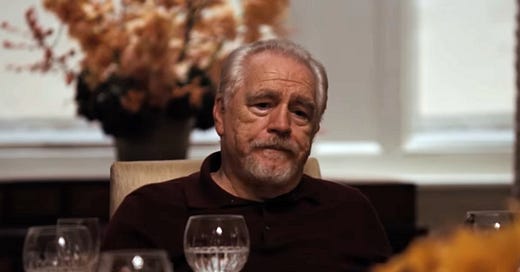The HBO show Succession has had me thinking about families and competition. Clearly, the Roys are no one’s idea of a good family—of the complex and loving relationships that should characterize familial relationships. The Roys are, in fact, the anti-family, a group of people related by blood who have enthroned an exaggerated version of the values of the market—competition, power, and control—at the heart of family life. In a sense, the show demonstrates what family is by showing what it is not.
Competition is an inescapable fact of life and a cause of much of what we count as progress. In the marketplace, competition is vital to innovation and efficiency. Human beings seem built for competition and benefit greatly from the excellence it produces.
But competition can also break the bounds of legitimacy and become exploitation. A recent survey looking at attitudes toward competition among American men found a that 51 percent of men who identified as “very masculine” believe that to “take advantage of others” is a masculine attribute. C.S. Lewis characterized Hell as a place dominated by the competitive instinct, with spirits vying to be awarded a slice of one another as a reward from “our Father Below.”
The competitive instinct is so strong that, in family life, we go to great lengths to limit it. When families are functioning well, they tend to operate more like islands of socialism, anti-competitive to the core in all but the most benign ways. If anything, families lean toward the principle of “from each according to their means to each according to their needs.” The family is the place we go to turn off, or at least mute, the often bruising competition experienced in the rest of life. It is (or should be) a place of solace, rest, and restoration from the bruises we incur as we “truck, barter, and exchange” in society and the economy.
Sharing, rather than competing, is what makes family family. Adam Smith writes on the unique role of families in building a culture of sharing in his Theory of Moral Sentiments: “The earliest friendships, the friendships which are naturally contracted when the heart is most susceptible of that feeling, are those among brothers and sisters. Their good agreement, while they remain in the same family, is necessary for its tranquillity and happiness.” Families reach this tranquility by engaging in what Smith calls “habitual sympathy”—the long practice of fellow-feeling and mutual material and emotional support that helps us learn why and how to rank the happiness of others, especially those closest to us, as on par with our own. In this virtuous cycle of affection, self-giving, and love we are made fit for civilization, learning to curb our own desires and make space for others for their sake and our own.
Thanksgiving Day is perhaps the preeminent memorial and celebration of “habitual sympathy.” Our family gatherings, while they display the fruits of the market and of our labors, are anything but marketplaces themselves. Parents, grandparents, siblings, aunts, uncles, cousins, and our most intimate, family-like friends gather to share from the bounty of their lives without the nagging worry we might be giving more than we’re getting.
On Thanksgiving, Smith’s habitual sympathy takes the form of turkey, mashed potatoes, and not-uniformly-great green bean casserole. It is less the quality of the food that matters than the giving and receiving of the food as sign and signal of the warmth of intimate exchange that occurs while we eat together. Thanksgiving reminds us of a kind of unlimited and unquestioned solidarity of care that is as much a part of our nature as our tendency, in other times and places, to maximize our self-interest. One might as well smash the cranberry sauce on the floor as introduce competition into the rites and rituals of Thanksgiving.
Here’s where I’ll let you into a secret I’ve learned about the life of the family: It extends beyond itself. As an Italian monsignor told me, “A family produces more love than it consumes”—and in so doing, he said, becomes a beacon not just of care for others in this world, but of the love that awaits us in the next. When you gather this week, remember that your family—and all our families—are a source of life and hope in a world that sometimes feels like it will be overtopped by strife and conflict. That’s enough for any family to be. It’s more than enough.





